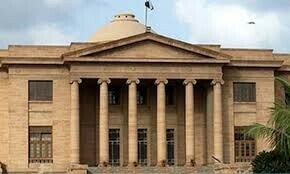THOUGH surrounded by the Cholistan desert in southern Punjab, Islamia University, Bahawalpur, (IUB), is a lush green tract of land covered with flowers and resounding with the warble of birds. A gazelle-breeding farm and an artificially created desert — sort of a minuscule Cholistan — complete with the typical environment is something the vice chancellor and his team can be proud of, not to mention the teaching and research facilities and a wonderful library the students of this backward area are provided with at the IUB.
Last week, the IUB added another feather to its cap by holding a three-day International Urdu conference on its campuses. The recently launched move to declare other Pakistani languages (formerly called ‘regional languages’) the “national languages” of Pakistan surfaced on the very first day of the conference. It echoed in the concluding session, too. But the general feeling was that since Urdu is the lingua franca of the country and it binds all the regions of the country together, the move would harm national unity and Urdu must remain the sole national language.
The theme of the three-day conference, organised by the IUB in collaboration with the Higher Education Commission and Vasaib, a local organisation working for the promotion of culture and literature, was Urdu in the 21st century. Over 50 delegates from all over Pakistan and delegates from Bangladesh, Egypt, India and Turkey deliberated on different aspects of Urdu language and literature in the 21st century.
In the opening session, Prof Dr Zafar Iqbal, vice chancellor of the Federal Urdu University, expressed his resentment over the attempts to declare other Pakistani languages — Punjabi, Sindhi, Balochi and Pashto — the national languages of Pakistan alongside Urdu. He said the move was aimed at relegating Urdu to a lesser status but it would seriously damage the national unity.
In the last session, Nasrullah Khan Nasir, a prominent scholar hailing from the Seraiki-speaking area, in his paper deliberated on the historical and linguistic roots of Urdu in the Multan and Bahawalpur areas and emphasised that Urdu must remain the sole national language since it was already the lingua franca of the country and served the other linguistic purposes quite well. The speakers while reaffirming Urdu’s status as the sole national language received thunderous applauds from the other delegates and audience.
The delegates included luminaries such as Intizar Hussain, Kishwar Naheed, Asgher Nadeem Syed, Dr Anwaar Ahmed, Reza Ali Abedi, Tabassum Kashmiri and Asif Farrukhi. Intizar Sahib in his speech lamented that though after the creation of Pakistan we declared Urdu as our national language, we simply “forgot it”. He said Urdu was the lingua franca of the subcontinent before the creation of Pakistan. Dr Ali Javed, a professor at Delhi University, said since Urdu was Pakistan’s national language it was the responsibility of the Pakistanis to save and promote it. Zubair Rizvi, an Indian poet and intellectual, said Urdu was the common and shared asset of both India and Pakistan. Delegates from Turkey, Egypt and Bangladesh informed the audience of the status of Urdu and the problems they faced in teaching Urdu in their countries. While the scholar from Turkey, Prof Durmush Balgur, and Egyptian scholars Dr Ibrahim Muhammad Ibrahim As-Sayyid and Dr Ahmed Qazi were optimistic, Dr Mahmoodul Islam of Bangladesh said the hatred created in 1952 on the issue of Urdu and Bengali still echoed in the minds of the Bangladeshis and the general attitude towards Urdu in Bangladesh was not very encouraging.
Reza Ali Abedi, describing how widely Urdu was understood in the subcontinent, in his usual eloquent style narrated how he travelled to the utmost corner of the subcontinent across Kashmir, along the border of Tibet. He said when he went to local people there and asked them in Urdu how they were, they said in perfect Urdu “aap ki dua hai”. Kishwar Naheed recited her famous poem ‘Wo jo bachchiyon se bhi dar gae’ (those who were even frightened by young girls) and said she hoped that the IUB would remain a haven for girl students. It was heartening to note that most students at the IUB’s Urdu department were women. It was a revolution considering that the first school for girls in Bahawalpur could not be opened before 1944.
Prof Dr Anwaar Ahmed has headed the National Language Authority (NLA) for quite some time and, therefore, knows well what ails the government institutions created to serve Urdu but have not been able to deliver what was expected of them. The NLA was established, as mentioned in the Constitution of Pakistan, with a view to adopt Urdu as the official language. Dr Anwaar in his speech suggested that a translation bureau be established to carry out necessary work. IUB vice chancellor Prof Dr Muhammad Mukhtar, despite being a scientist by education and training, seemed enchanted by Urdu language and literature and expressed his willingness to help promote Urdu. Prof Dr Najeeb Jamal, the chief coordinator of the event, ably conducted the opening and concluding sessions. In his introductory remarks, he beautifully summed up the aim for the conference.
What the citizens of Bahawalpur would not forget for a long time to come was the International Urdu Mushaera that took place as part of the conference. Organised in the Vasaib Hall, Bahawalpur, the mushaera was not only well-attended but some poets stole the show as the audience kept chanting “once more”.
While the delegates of the conference were generally very optimistic about Urdu in the 21st century and beyond, they expressed some apprehensions also and stressed that still a lot was to be done for Urdu.















































Dear visitor, the comments section is undergoing an overhaul and will return soon.